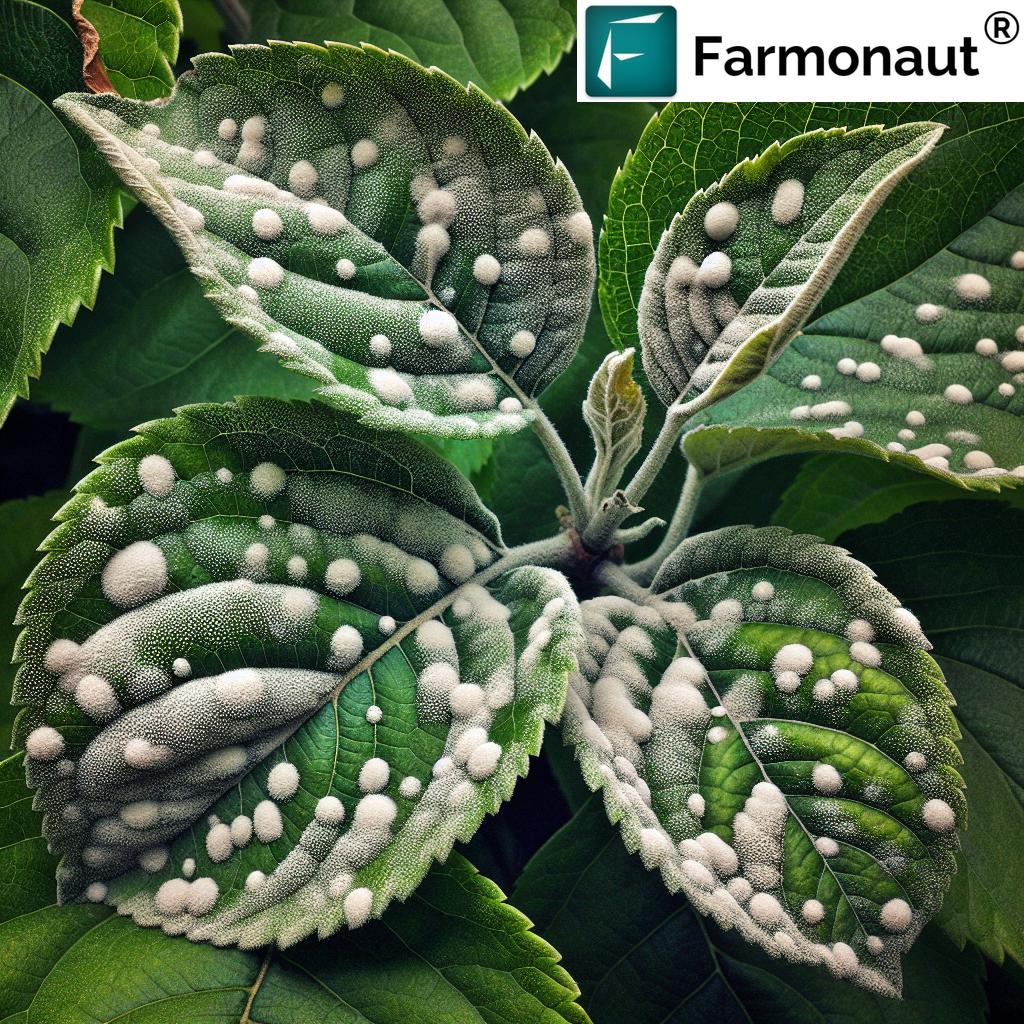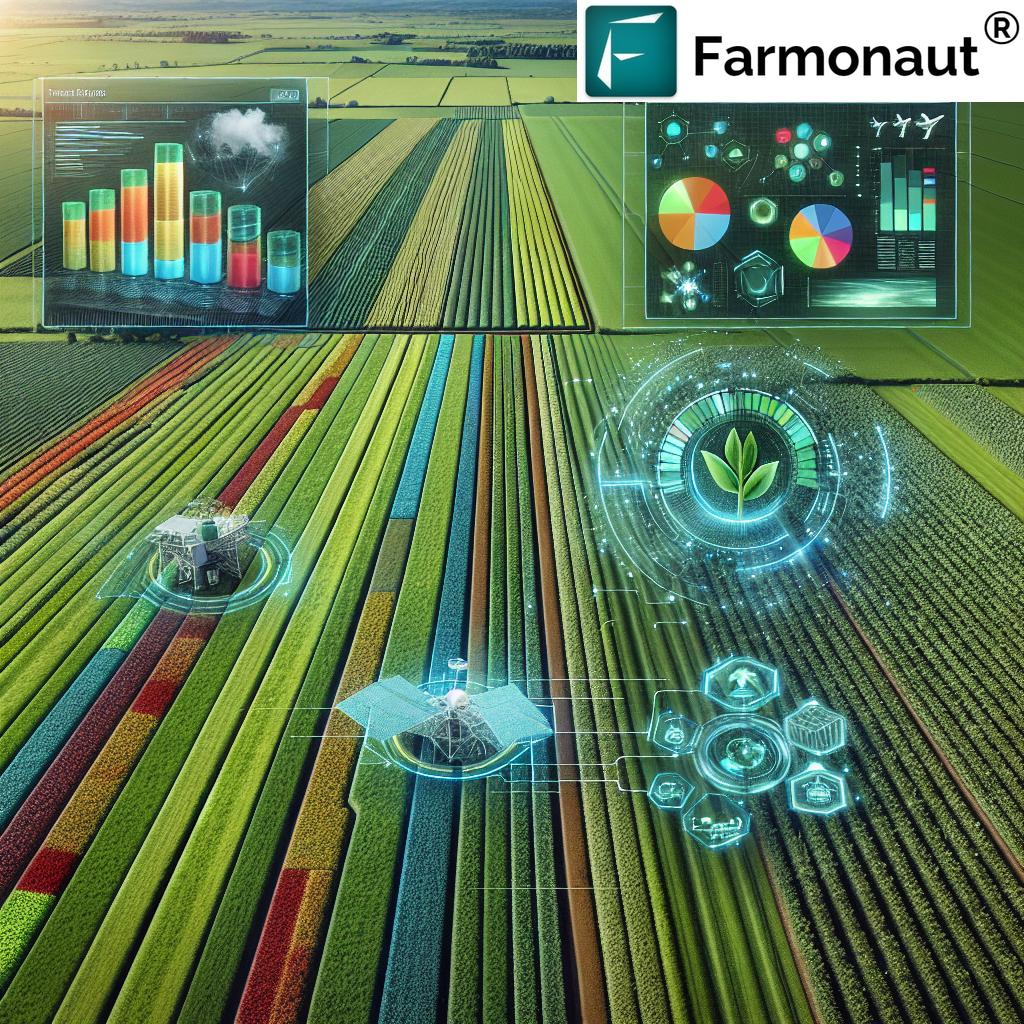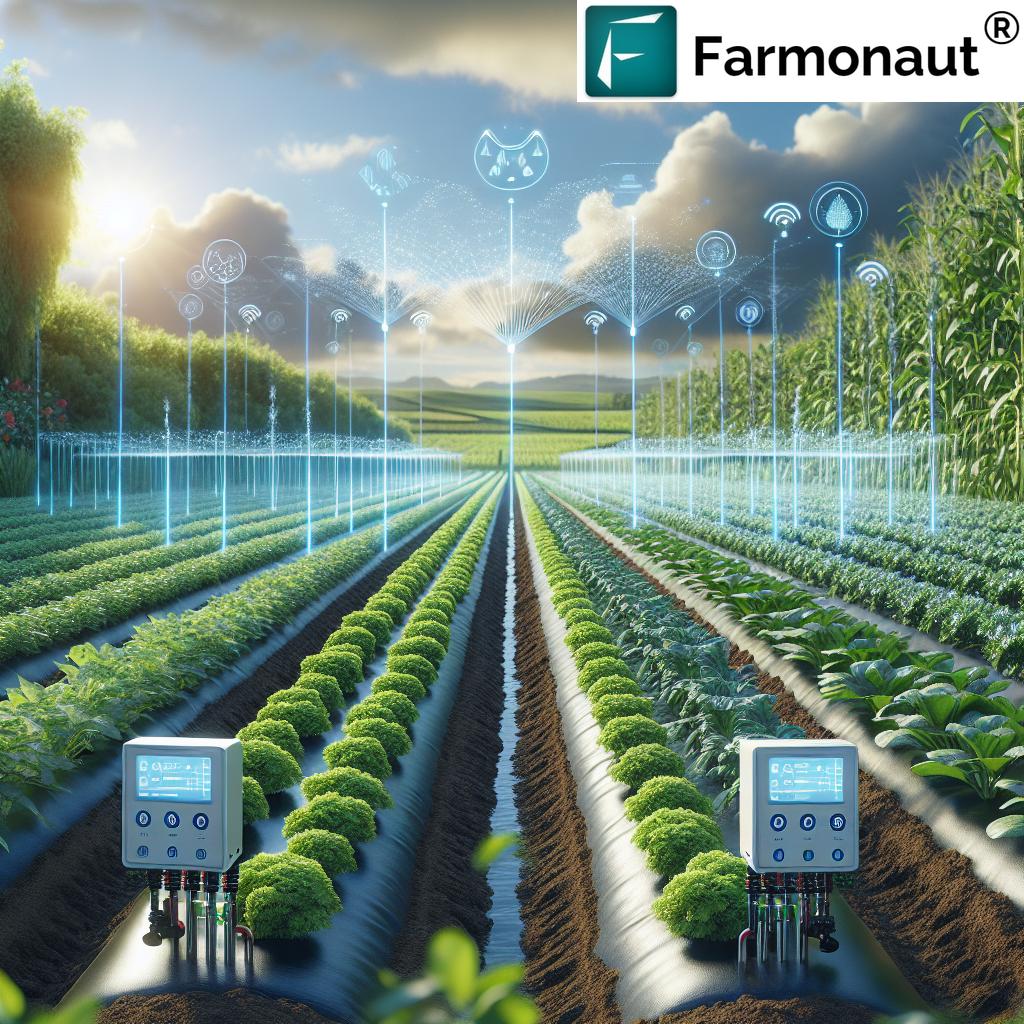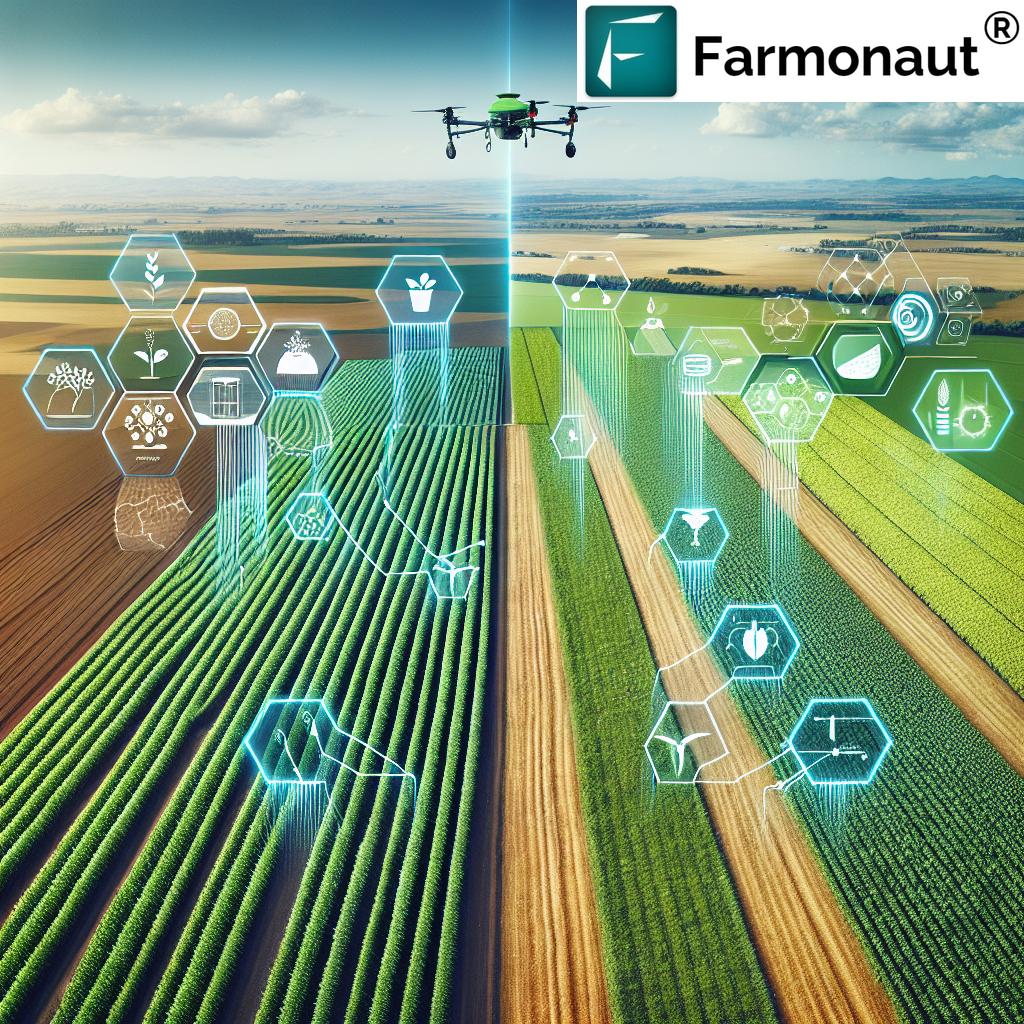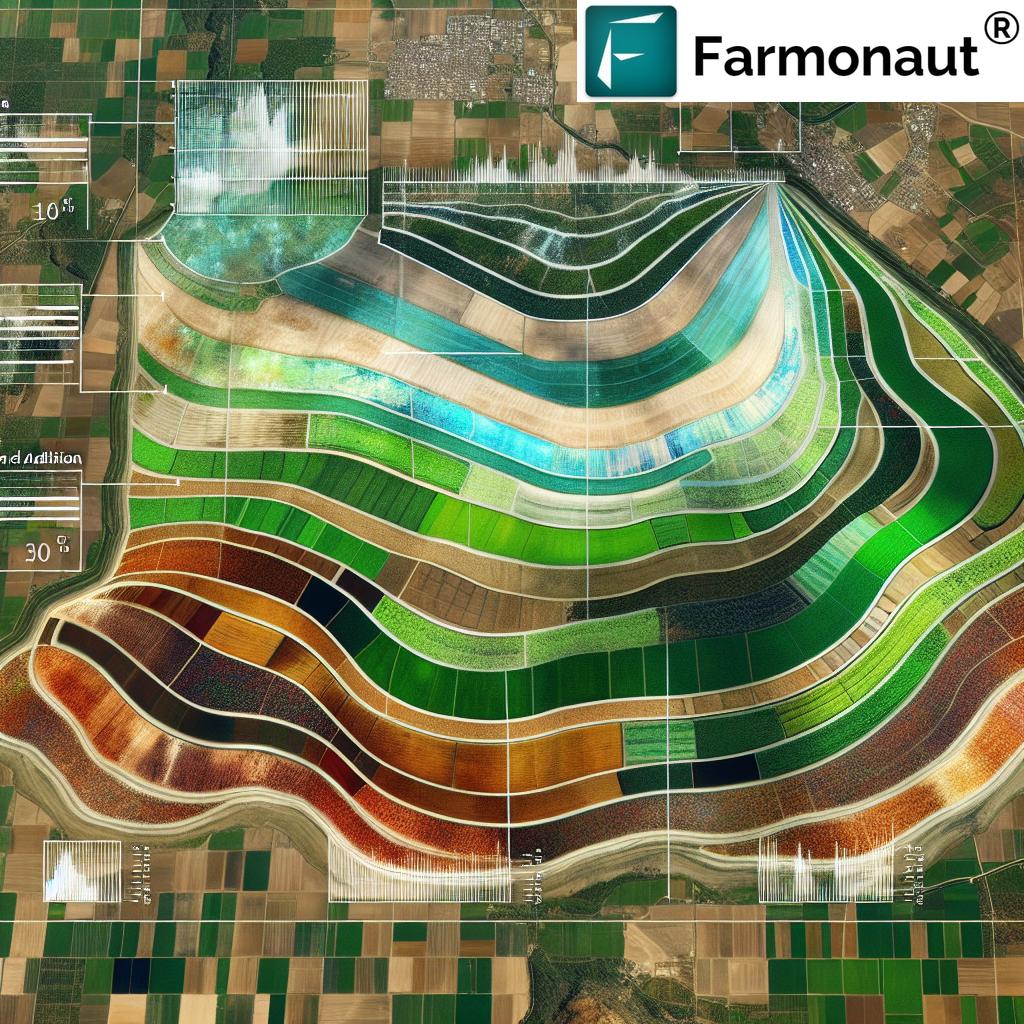Organic Pest Control: Combating Yellow Leaf Discoloration and Nitrogen Deficiency in Plants
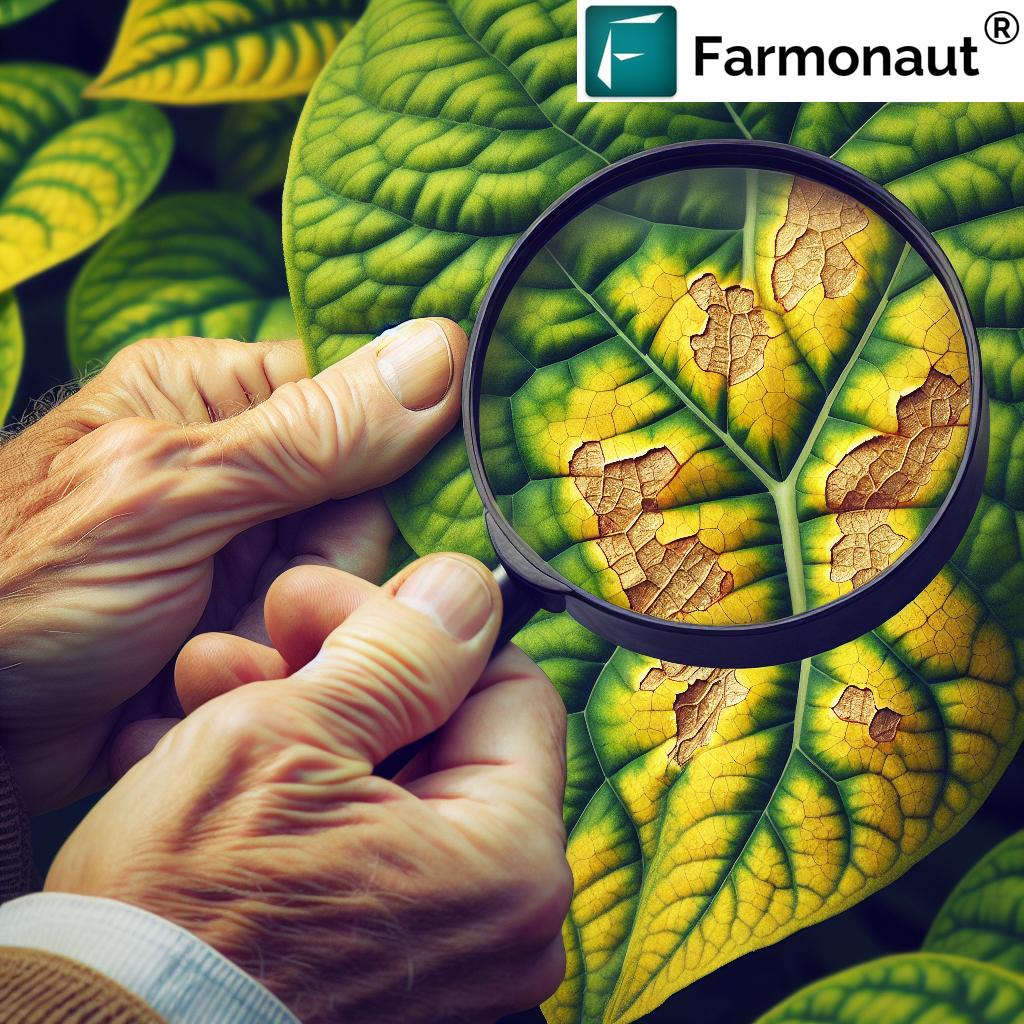
In the world of agriculture, we often encounter challenges that can significantly impact crop health and yield. Two common issues that farmers face are yellow leaf discoloration and nitrogen deficiency in plants. These problems can be particularly troublesome for those practicing organic farming, where conventional chemical solutions are not an option. In this comprehensive guide, we’ll explore the causes of these issues, their impact on plant health, and most importantly, how to address them using organic methods. We’ll also discuss how innovative technologies, like those offered by Farmonaut, can aid in early detection and management of these problems.
Understanding Yellow Leaf Discoloration
Yellow leaf discoloration, also known as chlorosis, is a common problem that affects various plants, including cereals and other crops. This condition is characterized by the yellowing of leaves, which can significantly impact the plant’s ability to photosynthesize and, consequently, its overall health and productivity.
Causes of Yellow Leaf Discoloration
- Nutrient Deficiencies: One of the primary causes of chlorosis is a lack of essential nutrients, particularly iron, magnesium, and nitrogen.
- pH Imbalance: Soil pH that is too high or too low can affect nutrient availability, leading to yellowing leaves.
- Poor Drainage: Waterlogged soil can lead to root problems, affecting nutrient uptake and causing leaf discoloration.
- Pest Infestations: Certain pests can damage plant tissues, leading to yellowing leaves.
- Disease: Various plant diseases can cause leaf discoloration as a symptom.
The Importance of Nitrogen in Plant Health
Nitrogen is a crucial macronutrient for plants, playing a vital role in numerous plant processes. It’s an essential component of chlorophyll, the compound responsible for the green color in leaves and photosynthesis. When plants lack sufficient nitrogen, they often exhibit yellowing leaves, stunted growth, and reduced yield.
Signs of Nitrogen Deficiency
- Yellowing of older leaves, starting from the tips and moving inward
- Stunted plant growth
- Reduced leaf size
- Premature leaf drop
- Weak stem growth
Organic Solutions for Yellow Leaf Discoloration and Nitrogen Deficiency
As organic farmers, we have a range of natural solutions at our disposal to address these issues without resorting to synthetic chemicals. Here are some effective organic measures:
1. Compost and Organic Matter
Adding high-quality compost to your soil is one of the most effective ways to improve overall soil health and provide a steady supply of nutrients, including nitrogen. Compost also helps improve soil structure, water retention, and microbial activity.
2. Cover Crops and Green Manures
Planting nitrogen-fixing cover crops like legumes (e.g., clover, vetch, or alfalfa) can naturally increase soil nitrogen levels. These plants form symbiotic relationships with bacteria that can fix atmospheric nitrogen into a form usable by plants.
3. Organic Fertilizers
There are several organic fertilizers rich in nitrogen that can be used to address deficiencies:
- Blood meal
- Fish emulsion
- Feather meal
- Composted manure
4. Foliar Sprays
Organic foliar sprays can provide a quick boost of nutrients directly to the leaves. Seaweed extracts, compost teas, and fish emulsions are excellent options for foliar feeding.
5. pH Adjustment
Ensure your soil pH is in the optimal range for nutrient uptake. For most plants, this is between 6.0 and 7.0. Use organic materials like lime to raise pH or sulfur to lower it.
6. Improved Drainage
Address drainage issues by adding organic matter to improve soil structure, or consider raised beds in areas with persistent drainage problems.
7. Organic Pest Control
Implement organic pest control measures to prevent pest-related leaf damage:
- Introduce beneficial insects
- Use neem oil or insecticidal soaps
- Practice crop rotation
- Implement physical barriers like row covers
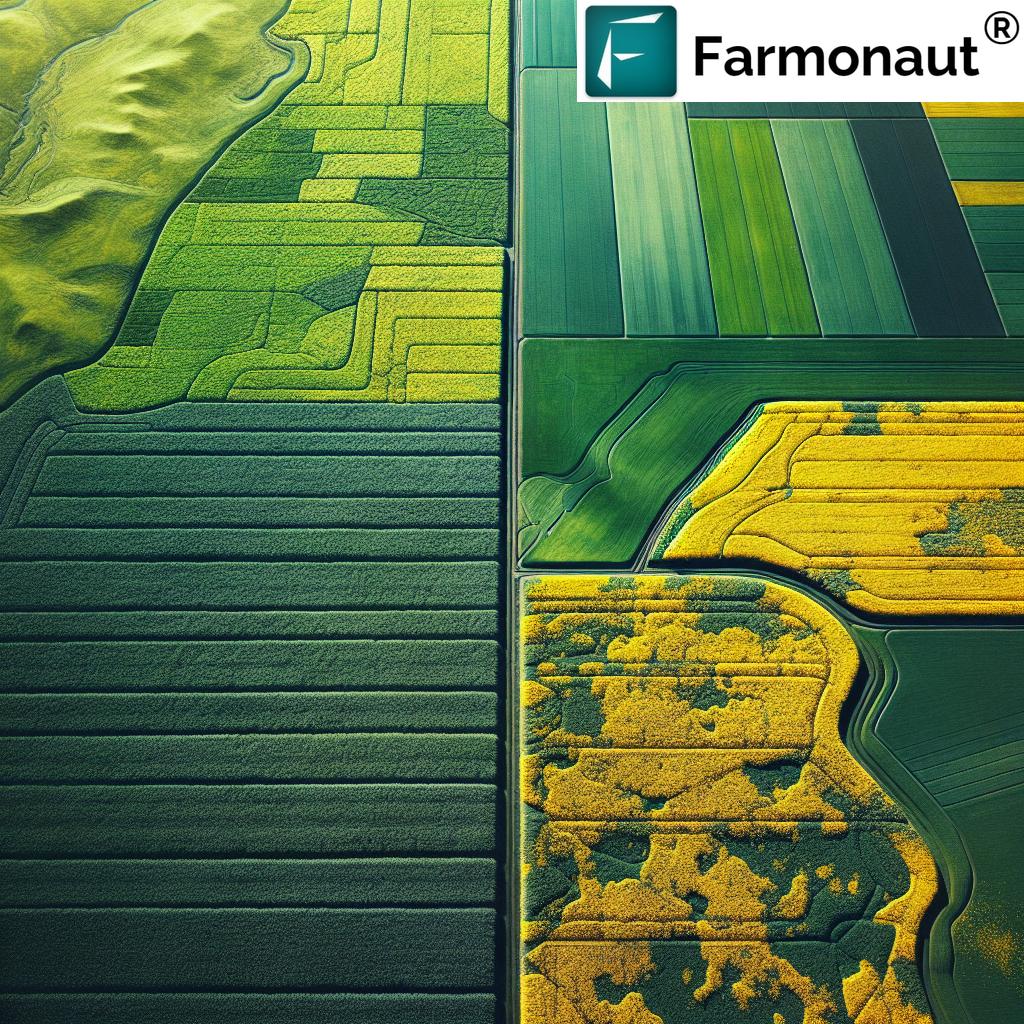
The Role of Technology in Organic Farming
While organic farming focuses on natural methods, modern technology can play a crucial role in enhancing these practices. Farmonaut, a pioneering agricultural technology company, offers advanced solutions that can significantly benefit organic farmers in managing issues like yellow leaf discoloration and nitrogen deficiency.
Satellite-Based Crop Health Monitoring
Farmonaut’s satellite-based crop health monitoring system provides real-time insights into vegetation health, including early detection of issues like chlorosis and nutrient deficiencies. By analyzing multispectral satellite images, the system can identify areas of concern before they become visible to the naked eye, allowing farmers to take prompt action.
AI-Powered Advisory System
The Jeevn AI advisory system from Farmonaut delivers personalized recommendations based on real-time data. This can include guidance on organic fertilization schedules, pest control measures, and irrigation management, all tailored to the specific needs of your crops and local conditions.
Precision Application of Organic Inputs
By providing detailed maps of crop health and soil conditions, Farmonaut’s technology enables precision application of organic inputs. This ensures that resources are used efficiently, reducing waste and maximizing the effectiveness of organic treatments.
Weather Forecasting and Climate Analysis
Access to accurate weather forecasts and climate analysis helps organic farmers make informed decisions about planting, harvesting, and implementing protective measures against extreme weather events that could exacerbate nutrient deficiencies or pest problems.
Conventional vs. Organic Farming with Farmonaut
| Issue | Conventional Method | Organic Method | How Farmonaut Helps |
|---|---|---|---|
| Nitrogen Deficiency | Synthetic nitrogen fertilizers | Compost, cover crops, organic fertilizers | Early detection through satellite imagery, precision application guidance |
| Pest Control | Chemical pesticides | Beneficial insects, neem oil, crop rotation | Early pest detection, targeted organic pest control recommendations |
| Soil Health Management | Chemical soil amendments | Crop rotation, green manures, compost | Soil health monitoring, customized organic soil management advice |
| Irrigation | Often over-irrigation | Water conservation techniques | Precision irrigation guidance based on soil moisture data |
Best Practices for Implementing Organic Solutions
To effectively combat yellow leaf discoloration and nitrogen deficiency using organic methods, consider the following best practices:
- Regular Soil Testing: Conduct soil tests at least annually to monitor nutrient levels and pH. This helps in tailoring your organic fertilization strategy.
- Crop Rotation: Implement a diverse crop rotation plan to naturally manage soil fertility and break pest cycles.
- Balanced Nutrition: While addressing nitrogen deficiency, ensure a balance of other essential nutrients to prevent new imbalances.
- Timely Application: Apply organic fertilizers and amendments at the right time, considering crop growth stages and weather conditions.
- Monitoring and Adjustment: Regularly monitor crop health and be prepared to adjust your organic management strategies as needed.
- Water Management: Implement efficient irrigation practices to prevent waterlogging and nutrient leaching.
- Integrated Pest Management (IPM): Adopt a holistic approach to pest control, combining various organic methods for optimal results.
Leveraging Farmonaut for Enhanced Organic Farming
To fully leverage the benefits of Farmonaut’s technology in your organic farming practices, consider the following steps:
- Sign Up for Farmonaut: Visit Farmonaut’s website to sign up for their services.
- Set Up Your Farm Profile: Input your farm details, including crop types, field boundaries, and farming practices.
- Regular Monitoring: Consistently check the satellite imagery and health reports provided by Farmonaut to stay ahead of potential issues.
- Implement Recommendations: Follow the AI-powered recommendations for organic pest control, fertilization, and irrigation.
- Track Progress: Use Farmonaut’s analytics to track the effectiveness of your organic management strategies over time.
- Integrate with Other Tools: Utilize Farmonaut’s API (API documentation) to integrate their data with other farm management tools you may be using.
Case Studies: Successful Organic Management with Farmonaut
While we don’t include specific case studies or success stories, it’s worth noting that many organic farmers have successfully used Farmonaut’s technology to enhance their farm management practices. These farmers have reported improvements in early detection of crop health issues, more efficient use of organic inputs, and overall increases in productivity and sustainability.
The Future of Organic Farming with Technology
As we look to the future, the integration of advanced technologies like those offered by Farmonaut with organic farming practices holds tremendous potential. We anticipate seeing:
- More precise and targeted application of organic inputs
- Enhanced ability to predict and prevent crop health issues
- Improved resource efficiency in organic farming systems
- Greater integration of data-driven decision making in organic farm management
- Increased accessibility of advanced farming techniques for small and medium-scale organic farmers
Conclusion
Addressing yellow leaf discoloration and nitrogen deficiency in organic farming systems requires a multifaceted approach. By combining time-tested organic methods with cutting-edge technology like Farmonaut’s satellite-based monitoring and AI-powered advisory systems, organic farmers can effectively manage these challenges while maintaining the integrity of their organic practices.
Remember, the key to successful organic farming lies in proactive management, continuous learning, and adapting to the specific needs of your crops and local environment. With the right tools and knowledge, organic farmers can overcome common challenges and achieve healthy, productive, and sustainable crop production.
FAQs
-
Q: How quickly can Farmonaut detect crop health issues like yellow leaf discoloration?
A: Farmonaut’s satellite-based monitoring can detect early signs of crop stress, often before they’re visible to the naked eye, potentially within days of the issue developing. -
Q: Is Farmonaut’s technology suitable for small-scale organic farmers?
A: Yes, Farmonaut offers solutions scalable to farms of all sizes, making advanced agricultural technology accessible to small-scale organic farmers. -
Q: Can Farmonaut’s system differentiate between different causes of yellow leaves?
A: While Farmonaut can detect leaf discoloration, the exact cause often requires on-ground verification. However, the AI advisory system can suggest potential causes based on patterns and additional data. -
Q: How often does Farmonaut update its satellite imagery?
A: The frequency of updates can vary depending on the service package, but typically ranges from daily to weekly updates. -
Q: Can Farmonaut’s technology help in planning crop rotation for organic farms?
A: Yes, Farmonaut’s AI advisory system can provide recommendations for crop rotation based on soil health data and crop history.
To start leveraging these advanced technologies for your organic farm, visit Farmonaut’s website or download their mobile app from the Google Play Store or Apple App Store.


